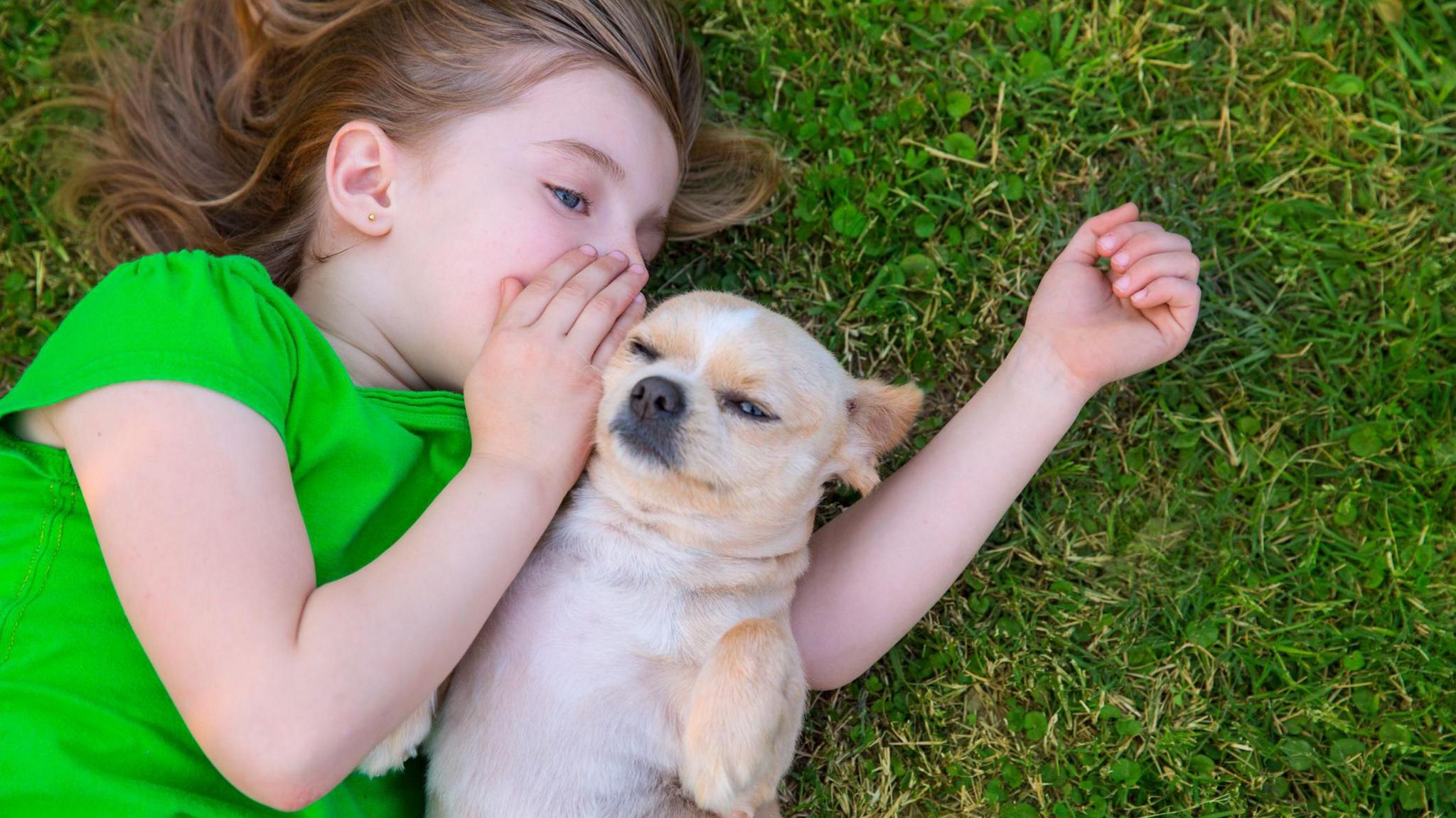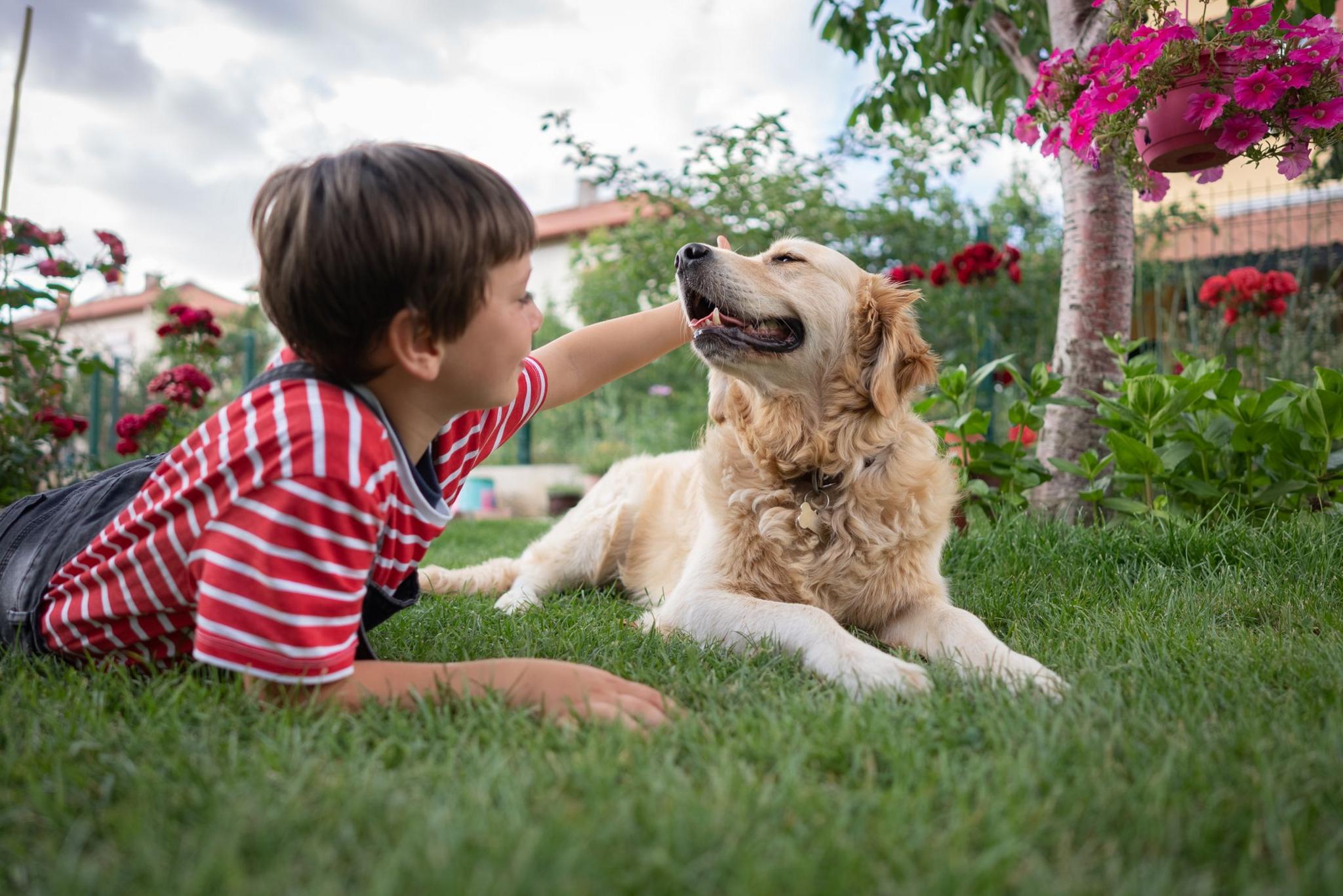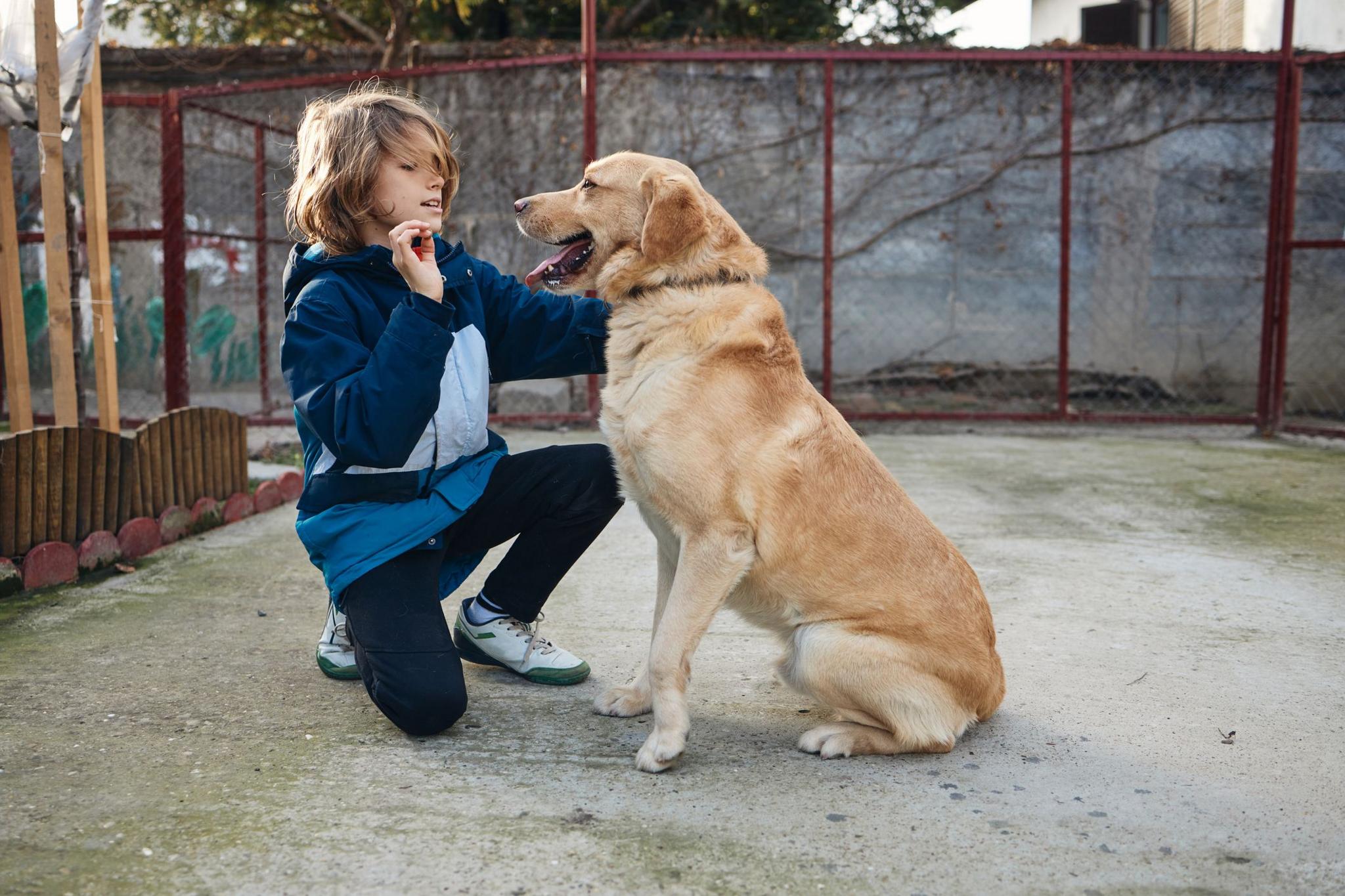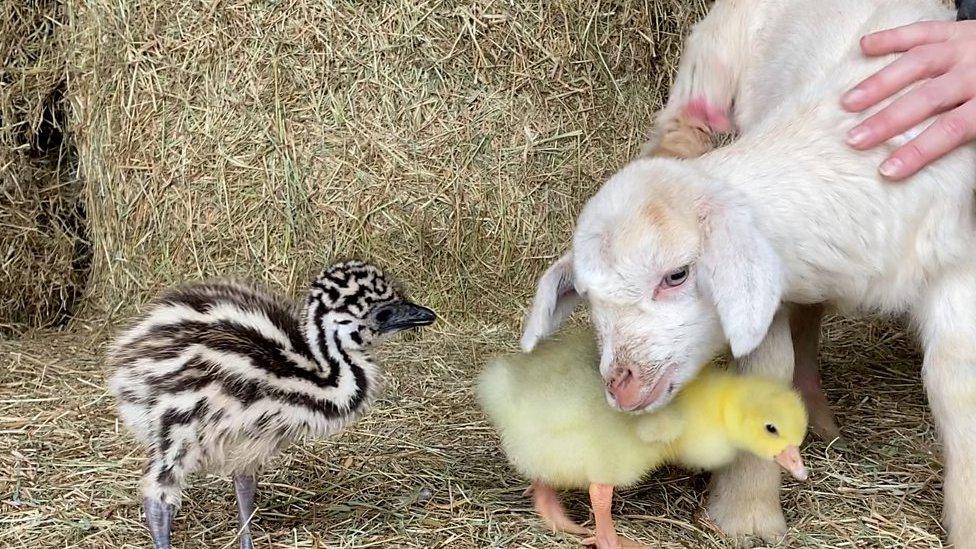Dogs rely on slower speech to understand humans

Speaking slower to dogs may help them understand humans better
- Published
The special connection between dogs and humans has existed for centuries.
Now, new research shows people changing the way they speak to their beloved pets could bring them even closer.
The study, carried out by a team from the University of Geneva in Switzerland, reveals humans slowing down their speech when talking to their dogs can make it far easier for their pooches to understand them and their commands.
It's all to do with the ability dogs have to receive and process the information they hear.
More like this
Meet some of the UK's most heroic dogs
- Published21 February 2024
Pampered pups take centre stage at US dog show
- Published17 May 2024
Winner of world's 'ugliest dog' competition crowned
- Published24 June 2024

Dogs and humans have had a close connections for thousands of years
Although dogs can't produce human sounds, they are able to respond to human speech.
The team who carried out the research looked at the vocal sounds of 30 dogs, as well as the sounds of 27 humans across five languages speaking to other people and 22 humans across those languages speaking to dogs.
The scientists also examined how the brain responds to speech in both humans and dogs.
The study revealed people are much faster talkers than dogs, with a speech rate of about four syllables per second.
Dogs, on the other hand, bark, growl, woof and whine at a rate of about two vocalisations per second.
The research found that when humans talked to dogs, they slowed their speech to around three syllables per second.

Dogs communicate at a slower rate than humans
Analysis of brain signals showed dogs' neural responses to speech are focused on slower brain waves, while human responses to speech are focused on faster rhythms.
The research suggests humans and dogs process vocals differently and that people slowing down their speech when speaking to pets may allow humans to better connect with them.
"Comparative exploration of neural and behavioural responses to speech reveals that comprehension in dogs relies on slower speech rhythm tracking than humans," they said.
However, a dog's ability to understand their humans isn't just about the speed of the speech. They also rely on what's being said as well as the pitch of the speech to help them process the information.
More animal stories
- Published8 January 2024

- Published27 March 2021

- Published26 September 2024

